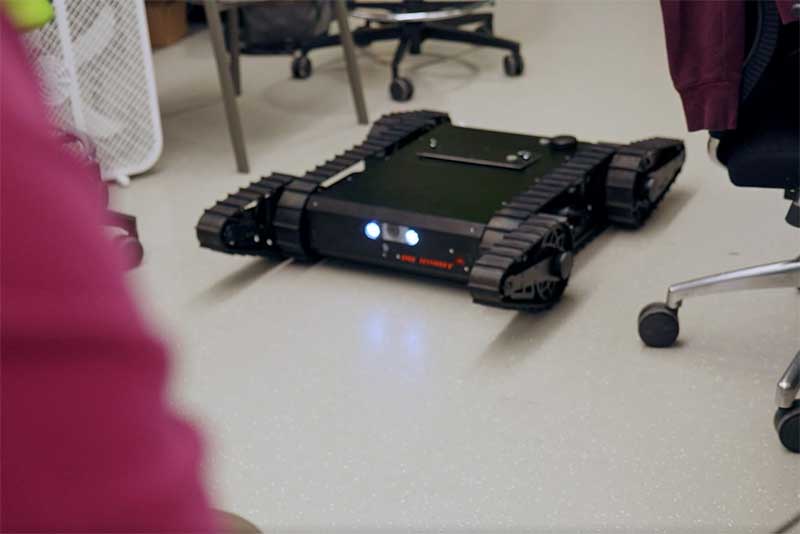
Master of Science in Operations Research
Master of Science in Operations Research
Overview
The Master of Science, MS, in Operations Research prepares students for operations research which deals with the application of scientific method to decision making. Its practitioners develop and solve mathematical and computer models of systems using optimization and statistical methods. Operations Research methodologies are being used to improve efficiency, reduce costs, and increase profitability in all organizations whether in manufacturing, transportation, logistics and supply chains, healthcare, or financial institutions.
Innovative Curriculum - Operations Research Master's
To be eligible for admission to any of the MS degree programs, a prospective student must hold a Bachelor of Science degree in engineering, science, mathematics, or an equivalent field. Students in all master’s degree programs must complete a minimum of 32 semester hours of approved course work (exclusive of any preparatory courses) with a minimum grade-point average (GPA) of 3.000.
Flexibility
Students can complete a master’s degree by pursuing any of one of the three tracks: course work option, project option, and thesis option.
Students may pursue any program either on a full-time or part-time basis; however, certain restrictions may apply.
Research
Each year the department receives approximately $10 million in funding to pursue use-inspired and fundamental research in many emerging fields that support and enhance our degree programs. Our federally-funded research centers (e.g., Center for High-rate Nanomanufacturing (CHN), a National Science Foundation Nanoscale Science and Engineering Center, and Healthcare Systems Engineering Institute, funded by the Department of Health and Human Services) demonstrate our leadership in key applications that create knowledge and impact society.
Also view our department research areas.
Learning Outcomes
- An ability to identify, formulate, and solve complex engineering/scientific/quantitative problems.
- An ability to explain and apply engineering design principles, as appropriate to the program’s educational objectives.
- An ability to produce solutions that meet specified end-user needs with consideration of public health, safety, and welfare, as well as global, cultural, social, environmental, and economic factors.
- An ability to recognize the operations research tools/methodologies needed to improve efficiency, reduce costs, and increase profitability in all organizations whether in manufacturing, transportation, logistics and supply chains, healthcare, or financial institutions.
Graduate Certificates
Over 15 graduate certificates are available to provide students the opportunity to develop a specialization in an area of their choice. Certificates can be taken in addition to or in combination with a master’s degree, or provide a pathway to a master’s degree in Northeastern’s College of Engineering. Master’s programs can also be combined with a Gordon Engineering Leadership certificate. Students should consult with their faculty advisor regarding these options.
Gordon Institute of Engineering Leadership Certificate
Students may complete a Master of Science in Operations Research in addition to earning a Graduate Certificate in Engineering Leadership. Students must apply and be admitted to the Gordon Engineering Leadership Program in order to pursue this option. The program requires fulfillment of the 16-semester-hour curriculum required to earn the Graduate Certificate in Engineering Leadership, which includes an industry-based challenge project with multiple mentors. The integrated 32-semester-hour degree and certificate will require 16 hours of advisor-approved operations research technical courses.
Engineering Business Certificate
Students may complete a Master of Science in Operations Research in addition to earning a Graduate Certificate in Engineering Business. Students must apply and be admitted to the Galante Engineering Business Program in order to pursue this option. The program requires the applicant to have earned or be in a program to earn a Bachelor of Science in Engineering from Northeastern University. The integrated 32-semester-hour degree and certificate will require 16 semester hours of the operations research core courses and 16 semester hours from the outlined business-skill curriculum. The coursework, along with participation in co-curricular professional development elements, earn the Graduate Certificate in Engineering Business.
Experiential Learning
Northeastern combines rigorous academics with experiential learning and research to prepare students for real-world engineering challenges. The Cooperative Education Program, also known as a “co-op,” is one of the largest and most innovative in the world, and Northeastern is one of only a few that offers a Co-op Program for graduate students. Through this program students gain up to eight months of industry experience employed in their field of interest as part of the academic curriculum, giving them a competitive advantage after graduation.
Program Goals
Upon graduation, students who pursue the MS in Operations Research may work in industry or may continue their studies by pursuing the PhD in Industrial Engineering. These extensive programs and course work allow for the selection of a degree that meets a wide range of personal and professional goals.
The in-demand field of operations research opens career doors around the globe and across industries, including healthcare, supply chain and logistics, national security, banking, finance, marketing, and human resources.
Employment of operations research analysts is projected to grow 23 percent from 2023 to 2033, much faster than the average for all occupations.
Academic Advising
We have a variety of advisors to help make your graduate career a success, so use the link below to determine which one will help you the best.
Admissions & Aid
Ready to take the next step? Review degree requirements to see courses needed to complete this degree. Then, explore ways to fund your education. Finally, review admissions information to see our deadlines and gather the materials you need to Apply.
